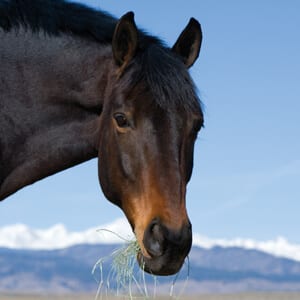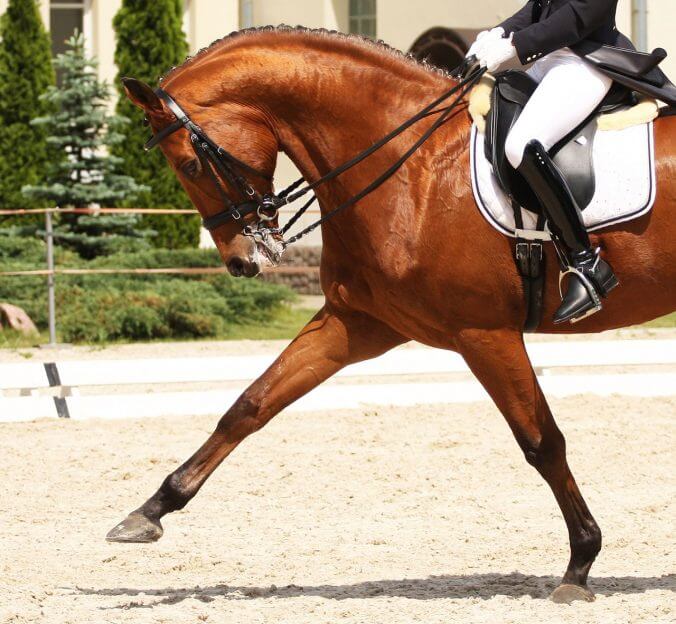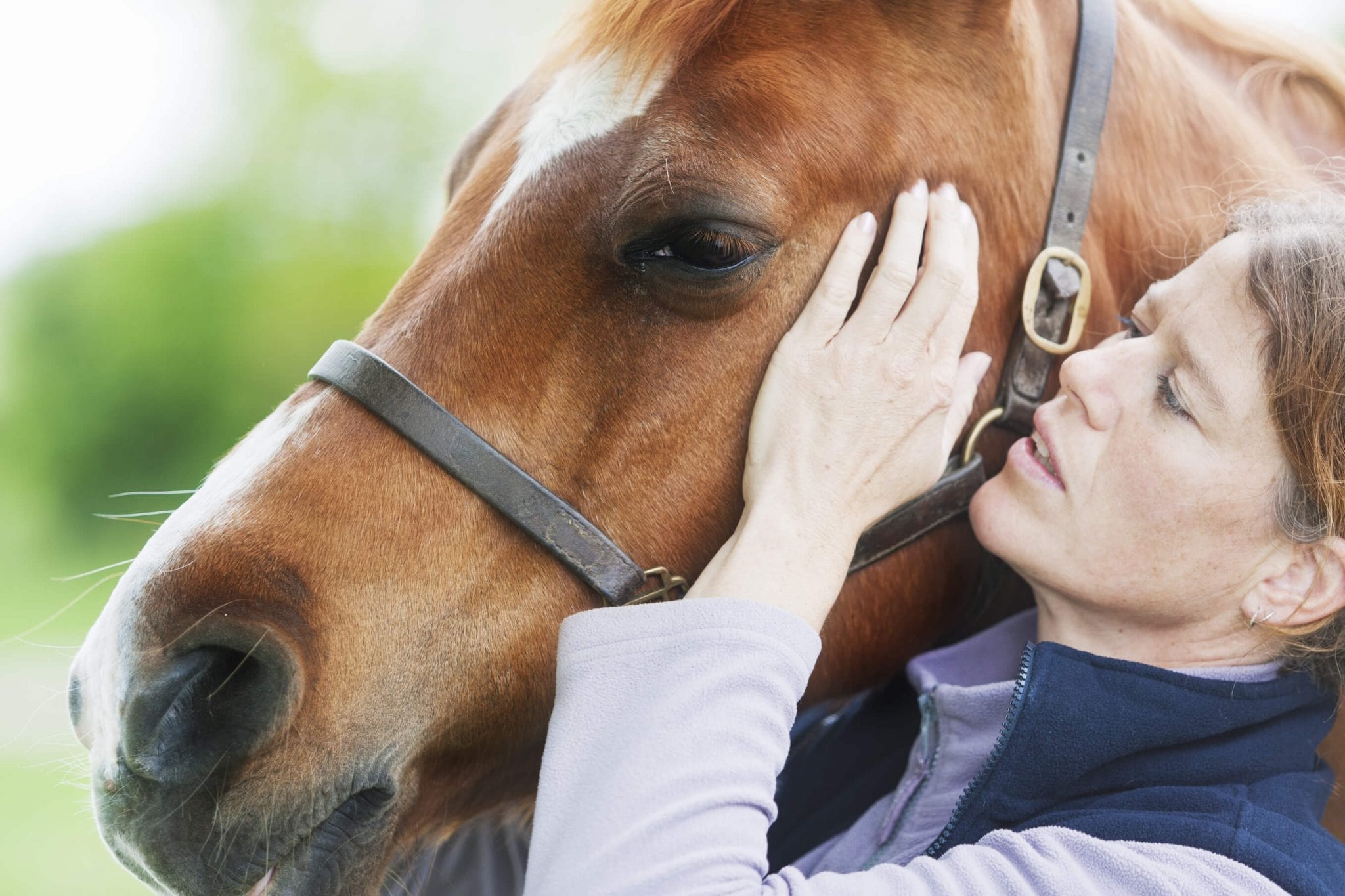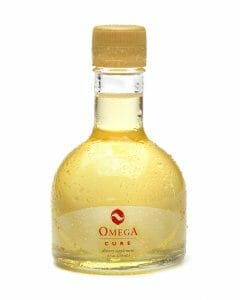5 Problems That Keep Horse Owners Awake at Night
Do you often find yourself not being able to sleep at night? If you’re like many horse owners, you could be tossing and turning over common, mostly fixable problems, like colic or stall casting. Knowing what to do in these situations should give you some peace of mind. And having an easy supplement to keep both horses and owners calm and healthy makes a difference too.
Let’s take a look at how to treat five sleep-stealing problems:
How Do I Prevent My Horse from Getting Colic?
If the word alone makes you cringe, you are in good company. Colic, as most horse owners know, can happen to any horse at any time, and for a wide variety of reasons. Colic is one of the biggest causes of horse death worldwide, even though the condition can often be remedied by home medical treatment.
Horses are prone to colic because of the unique way their gastrointestinal organs are structured. Avoiding changes in diet and routines, and implementing preventative health programs may help prevent colic, but it’s no guarantee.
To boost your horse’s digestive health, add one to two ounces of Wellpride to your horse’s feed. The derivatives of the fish oil modulate acid secretion and enhances mucosal blood flow, all of which ensures a healthy stomach.
Should your horse contract colic, however, keep a cool head and take immediate action. Here’s what to do:
1. Call your local veterinarian.
2. Move your horse into a small area that is well bedded, allowing for close observation.
3. Remove all food from the area to prevent the horse from eating.
4. If you notice your horse rolling around, try to lightly walk him around to stop him from twisting his bowel. This will also help distract your horse from the pain.

How Do I Avoid Stall Casting?
Many owners are terrified that they’ll wake up one morning and find their horses lying down against a wall, making it impossible for them to get up on their own. While it’s less traumatic than a case of colic, stall casting can still be a scary situation for owners, and potentially dangerous the horse. Horses can injure themselves in a stall casting if their legs and head hit the side of the stall in panic.
So what should you do? While your first instinct might be to move the horse, you could endanger yourself if your horse panics.
Here’s a recipe that should give you a measure of reassurance:
1. Go find assistance.
2. Before entering the stall, remember to talk to the horse so that he does not spook and injure himself further.
3. Move the front of the horse to the center of the stall by positioning yourself against the middle of his neck and pulling it back towards you. Never use the halter to move the horse; the pulling motion from the head can cause damage to the spine.
4. Once the horse has enough room to get his legs underneath him and stand up, move out of the stall and give him room. Once the horse is standing, calmly check for any injury and remove his halter to check for any signs of internal swelling to the head.
5. Two hours after the incident, go back and check on the wellness of your horse. By this time, any swelling and further injuries should have had time to appear. Also, be sure to evaluate your horse’s joints, since they’ve likely gotten stiff from not being able to move for long periods of time.
Omega-3 fish oil can help reduce a horse’s joint pains and improve flexibility. If you find your horse has stiff joints regularly, give your horse a dose of Wellpride every day. Omega-3 is a natural anti-inflammation agent, and will help improve agility and reduce joint pains.

Is My Horse Comfortable?
Here’s a good rule of thumb to remember: If you are too hot, so is your horse. If you are cold, your horse may not be.
Horses can adapt better to cold weather than hot weather. With their warm winter coats, horses have a natural insulator that also keeps them dry at the skin. In cold temperatures, horse owners tend to keep their horses locked up for most of the day. But, the more time your horse spends outside, the healthier he’ll stay.
Blankets can help keep your horses warm, especially if you keep your horses clipped. Most of the time, one blanket is sufficient, but you can check the temperature by sticking your hand underneath and seeing for yourself.
Also, while horses have a wonderful ability to adapt, consistency is key. The more consistent you are with your horse, the more comfortable he will be.
Should I Turn Out My Horse?
Weather is a big factor for determining whether or not to turn out horses. Most horse owners believe that horses need to be turned out daily, so when the bad weather rolls around, owners often worry or are unsure of what to do. There are several factors to keep in mind when deciding to turn out your horse, no matter what the weather may be.
During bad weather spells, turn out your horses more frequently for shorter periods of time.
Keep your horse from becoming “fresh” during bad weather spells by turning out your horse frequently for shorter time periods. If your horse has shelter to get under, let him out as long as it is not lightning. Your horse will get under the shelter if he’s uncomfortable, so you should also take your cues from his behavior.
What If I Forgot Something Important?
Even if you’ve figured out how to tackle those key horse-health questions, you may still feel some lingering angst. I bet you’ve woken up wondering, “Did I latch the gate”?
Forgetting to latch a gate or fill a water bucket are common mistakes. But Wellpride has a solution for that too. You can try Omega Cure, the ultra-fresh fish oil for humans. Omega-3 plays a vital role in improving brains functioning, like memory, and helps ensure proper growth and development. So, as you pour Wellpride onto your horse’s feed, do yourself a favor and take a daily dose of your own.
Cheers to a good night’s rest!






